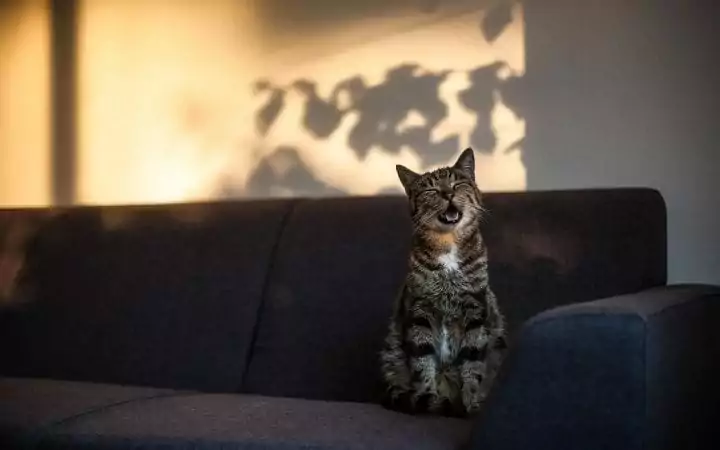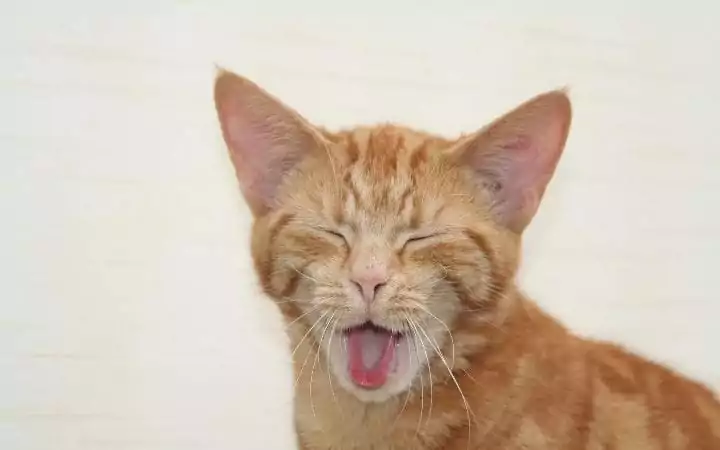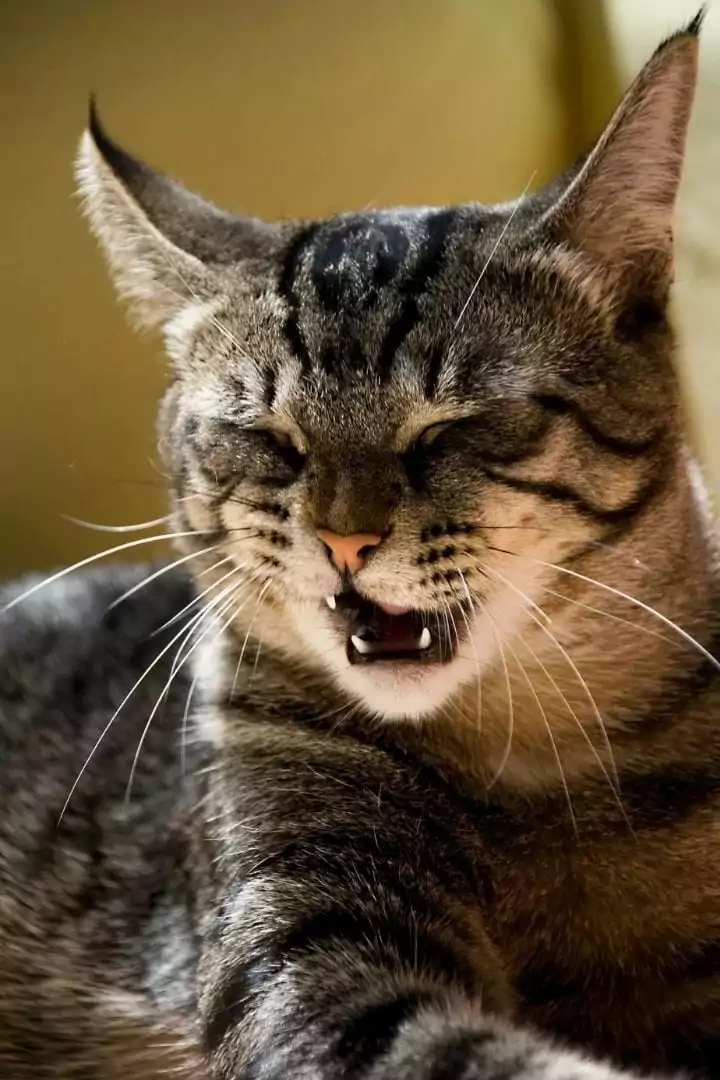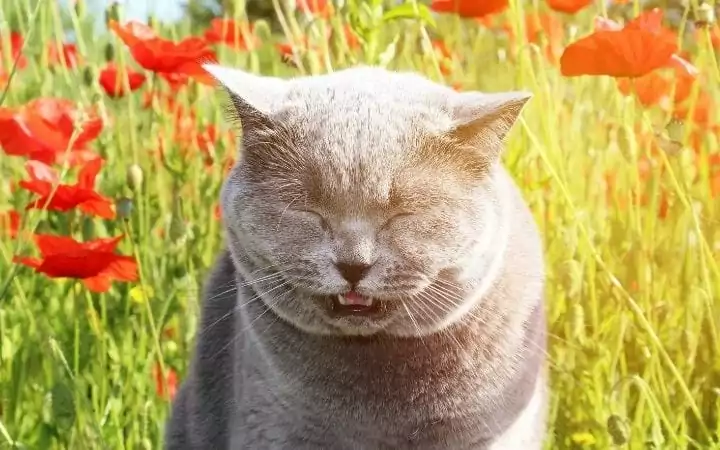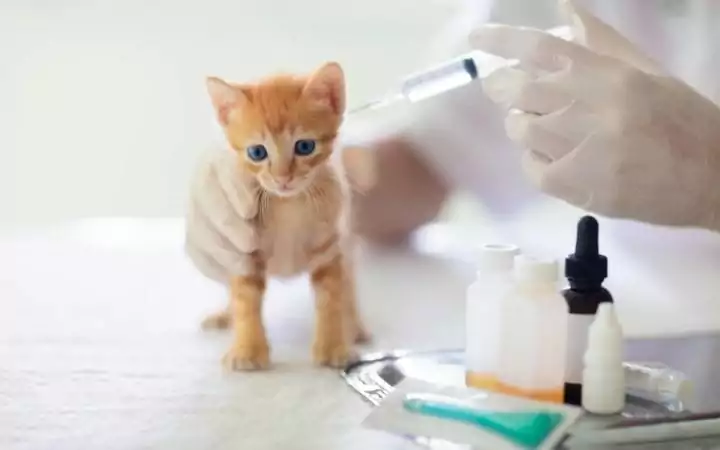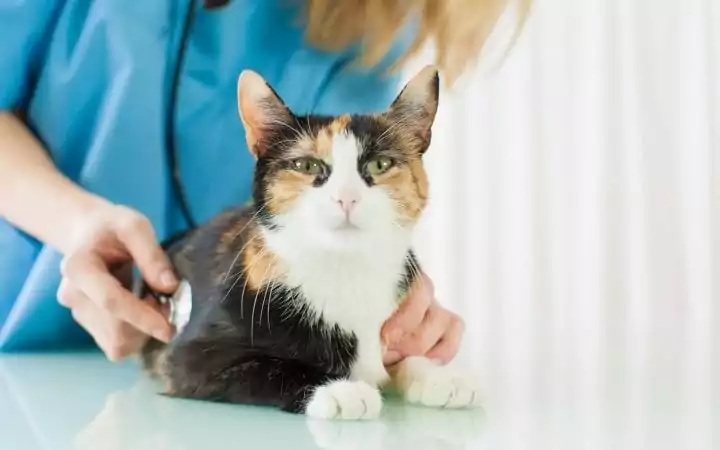A cat sneezing might be one of the cutest things ever. It’s something all cat owners will recognize. As with humans, there can be many reasons for a cat sneezing. Most of these are quite harmless and benign, but what about when your cat is sneezing a lot?
If your cat keeps sneezing, or if it’s accompanied by coughing or other symptoms, it might be more serious. So when should you take your cat for a visit to the veterinarian? Take a read below!
Why Is My Cat sneezing?
There are plenty of reasons why cats sneeze. An occasional sneeze is something perfectly normal for cats as well as humans. It is an explosive release of air through the nose and mouth. Most often, it is a response to something irritating the nasal passages.
This means that 99% of times when cats randomly sneeze, it is just because they got something up their nose. Perhaps something as common as a bit of dust – like when humans sneeze. It can also be due to strong odors or debris.
But, there can be more serious reasons for a cat sneezing. As a pet owner, it is thus important to keep a close eye on your furry friend. Especially if the sneezing is very repetitive. Or, if it is accompanied by other symptoms like coughing, nasal, or ocular (eye) discharge. If this is the case, you need to look into it more deeply and perhaps consider taking your cat to the veterinarian.
What Causes Cats to Sneeze?
If your cat is sneezing a lot, there can be several more severe causes than the obvious ones stated earlier in this article. Most of the time, it is merely an irritant in the airways.
But if the sneezing is persistent or goes along with other symptoms, you should pay attention.
Upper Respiratory Diseases in Cats
Sneezing is one of the most common symptoms of upper respiratory infections (URI) in cats. Some cats are more likely to get a URI – this includes elder cats, kittens, and immunosuppressed cats – meaning cats with a compromised immune defense.
Upper respiratory infections can either be viral, bacterial, or fungal. Sometimes it presents as a combination of one or more agents present in the airways. The most common viral pathogens are
- Feline Herpes-virus 1 (most similar to a regular “cold” for humans)
While the most common bacteria are
- Bordetella Bronchiseptica (Kennel Cough)
- Chlamydophila felis (Chlamydia for cats)
But, viral pathogens are responsible for approximately 90% of all upper respiratory cases in cats.
The symptoms – besides persistent sneezing – are:
- Nasal discharge
- Ocular discharge
- Ulcers in the mouth
- More unspecific symptoms: Lethargy (tiredness), an unwillingness to eat, and fever.
Luckily, with most of the uncomplicated cases, your cat can be treated symptomatically at home. Often the cat will feel better within 7 – 10 days.
But, it is essential to try and isolate your cat from other cats, as most URIs are highly contagious – most of them only to cats though. If you have more than one cat in the household, isolate them as well. A few cats can have a more severe case that needs more extensive treatment.
Chronic Upper Respiratory Conditions in Cats
Persistent and long term sneezing can also be due to permanent damage to the immune system and/or the nasal passages. Often this is termed chronic rhinitis. The symptoms are often similar to those of typical acute upper respiratory infections. But, instead of going away, they persist for weeks and sometimes even months. Sometimes it will come and go in intervals.
Chronic rhinitis can also lead to other complications. An example is recurring bacterial infections in the nasal passages, which may worsen the symptoms.
Symptoms of chronic conditions include long term sneezing, as well as.
- Stuffy and runny nose
- Thick yellow discharge from the nose
- Loss of appetite (due to loss of sense of smell)
With chronic conditions, it can be more complicated to treat the symptoms. It is crucial first to diagnose the underlying condition. Often this with the help of diagnostic tests like x-ray and blood tests.
Even if the underlying condition can be analyzed, there’s rarely a cure for chronic rhinitis. This is because the damage has already been done to the nasal passages. The “cure” is to treat the symptoms as best as possible, with frequent veterinary visits and home care.
Allergies
Allergies are – unlike in humans – quite rare in cats, and sneezing is rarely a symptom. Some cats suffer the same spring-time sneezing as quite a few humans when the pollen comes out. It is especially often seen in cats with asthma.
More common symptoms of allergy in cats include
- Skin lesions
- Itchiness
- Hair loss
Treatment depends on what causes the allergic reaction. It may be seasonal triggers outdoors, like grass pollen. Or permanent if caused by indoor triggers, like dust and/or cleaning products.
When Should You Take Your Cat to the Veterinarian?
If your cat keeps sneezing, it is time to look into why. First, you should check the cat’s environment. There might be something in the environment that causes the sneezing that can be removed. This could be strong, bothersome cleaning products, excessive dust, or the smell of cooking.
But, if this doesn’t help or change the sneezing frequency, it might be time to see a veterinarian. Note, kittens should always be seen straight away by a veterinarian if they sneeze – mostly if they have not yet completed their vaccination program.
For adult cats, a visit to the veterinarian is often necessary if other symptoms are present. Especially symptoms where discharge from mouth and eyes are present.
Another sign that is quite common in cats with upper respiratory diseases is a loss of appetite. This is because the cat loses its sense of smell and/or taste when they lose the ability to breathe out of their nose. Most cats will then refuse to eat. Some conditions can also cause difficulty when swallowing.
Unlike humans, that can go for weeks without eating, cats will go into “starvation mode” after 2-3 days. This can lead to severe and potentially fatal conditions, like hepatic lipidosis (fatty liver syndrome). So if your cat isn’t eating enough? Call the veterinarian immediately.
Remember, if you are ever in doubt about whether you should contact your veterinarian, it is always better to call them and ask a professional opinion. This will ensure your cat gets the best care and hopefully a speedy recovery.
Summary
A cat sneezing once or twice is rarely a cause for concern. It might be something that irritates the nose. But, if your cat keeps sneezing or has other symptoms, it’s time to call your veterinarian.
Most cases of persistent sneezing in cats are reasonably easy to deal with. Often symptomatic care at home is enough! But, in a few cases, more help might be necessary. So to avoid any long term consequences, keep a good eye on your furry friend, and it’s sneezing – no matter how cute it is!

